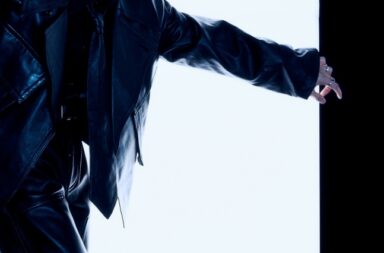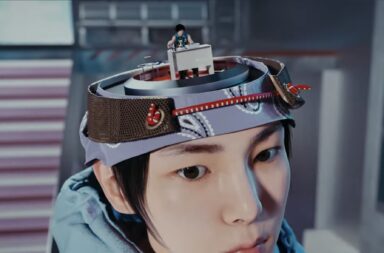When newly-minted international superstar Psy was asked by The Hollywood Reporter in 2012 what he deemed to be the USA’s greatest export, he answered:
“First of all, the English language. And also pop music. A song like Michael Jackson[‘s] ‘Billie Jean,’ it’s like the world’s biggest, most universal language.”
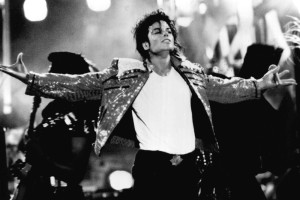 Now, the answers he chose (language & pop music) might not be surprising. But the fact that he chose Michael Jackson as an example is notable, and, as this article will convey, in no way a coincidence.
Now, the answers he chose (language & pop music) might not be surprising. But the fact that he chose Michael Jackson as an example is notable, and, as this article will convey, in no way a coincidence.
Of course, some might argue that Jackson is an obvious pick. Hailed as the King of Pop for decades, and with his popularity surging up again after his untimely death in 2009, MJ would easily come to a lot of people’s minds when they think of pop music. Yet, the connection between K-Pop and Michael Jackson is surprisingly deep-rooted and his influence a pervasive one.
This connection can be traced back to the very beginnings of modern K-Pop, namely Seo Tae-ji and Boys legendary first performance of “난 알아요 (I Know)“ in 1992. Only about half a year earlier, Jackson had released his landmark album Dangerous, for which he hired a new additional producer named Teddy Riley, who was known as one of the key figures in the New Jack Swing genre.
To this day, Dangerous is considered to be the most successful record of this genre in existence. Knowing that, it might not be a stretch to assume that the New Jack Swing influence which can be found in Seo Tae-ji and Boys’ early music was inspired by exactly this Jackson record.
An article released on the website of the Korean weekly magazine Jugan Chosun seems to confirm such an assumption, since it states the claim that “Hallyu is just imitating Michael Jackson”. (On the other hand, it should be added that the Jugan Chosun belongs to the Chosun Ilbo — a conservative newspaper which is not known for the accuracy and objectivity of its reports.)
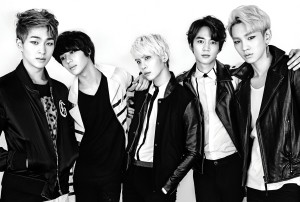 This musical influence remained a considerable feature of the K-Pop landscape, and finally manifested itself in the recruitment of Teddy Riley by SM Entertainment. Though he has also produced for other artists, one of his most interesting contributions to K-Pop is his work with SHINee; especially the two songs he recorded with them for (Chapter 2) Why So Serious? – The Misconceptions of Me. And doesn’t it almost seem like destiny that the funky, second one of these two related songs should be called “Dangerous”?
This musical influence remained a considerable feature of the K-Pop landscape, and finally manifested itself in the recruitment of Teddy Riley by SM Entertainment. Though he has also produced for other artists, one of his most interesting contributions to K-Pop is his work with SHINee; especially the two songs he recorded with them for (Chapter 2) Why So Serious? – The Misconceptions of Me. And doesn’t it almost seem like destiny that the funky, second one of these two related songs should be called “Dangerous”?
Add to this 1) Taemin’s MJ-esque first solo venture, also entitled “Danger”, this year, and 2) keep in mind that Billboard called the group “Korea’s five mini Michael Jacksons with their harmonies recalling The Jackson 5”, and everything will start coming together.
Park Jin-young of JYP Entertainment, too, stated that Jackson’s music “became the definition of music to [him]”. It seems safe to say that all three big companies are run/their artists’ music is produced by people whose musical development was hugely impacted by Michael Jackson’s existence.
But Jackson has not only been a huge influence on the music of idol bands. Singers who firmly place themselves on the K-Hip-Hop/R&B side of things have also paid homage to the King of Pop. Two of the latest examples are Jay Park’s “So Good” (which sees him prancing around in a red leather jacket à la “Thriller”) and Crush and Zion.T’s “Hey Baby” (which alludes to several famous Jackson melodies and even includes a shout-out right after the first chorus).
[youtube http://www.youtube.com/watch?v=4bwxyt44b04]Apart from that, Michael Jackson’s influence goes beyond music and is especially obvious in the field of dance. Many of the most esteemed dancers in K-Pop, ranging from Rain to Taeyang to Taemin, have claimed MJ as their (often very visible) formative influence.
One of SM’s choreographers, Rino Nakasone (e.g. “Replay (누난 너무 예뻐)”, “Genie (소원을말해봐)”), also cites Jackson as the reason for K-Pop choreographies having become popular:
“Man, seriously, because of Michael Jackson. [laughs] ‘Cause he used to do that. Every time he made a video, everybody copied his moves, like “Thriller.” Everybody knows that. Or “Beat It.” Everybody knows the style. So, SM Entertainment really wanted me to choreograph something catchy, and then I guess people loved it.”
Looking at all these instances, It only seems right that Psy singled out Michael Jackson the way he did in his interview with The Hollywood Reporter. From the very beginning of modern Korean pop music, elements of Jackson’s sound have found their way into hits of South-Korean origin. It also seems like this sound was deliberately sought out by companies which recruited producers and singers who could provide the often imitated but seldom captured vibe of the King of Pop.
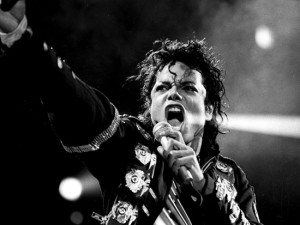 His precise, thrilling dancing and eccentric outfits, too, have had an undeniable influence on K-Pop, as well as other genres in the Korean music industry. Considering that many Koreans might have been affected by Michael Jackson’s sound and look rather than the actual words he was singing, Psy’s statement about those performances being a “universal language” holds a lot of truth.
His precise, thrilling dancing and eccentric outfits, too, have had an undeniable influence on K-Pop, as well as other genres in the Korean music industry. Considering that many Koreans might have been affected by Michael Jackson’s sound and look rather than the actual words he was singing, Psy’s statement about those performances being a “universal language” holds a lot of truth.
Of course, this statement about pop music as a “universal language” also brings to mind the development of K-Pop over the last two decades. Especially on a site like Seoulbeats, it is plain to see that Korean pop music, like its idol Michael Jackson, has the potential to move and inspire people. What a responsibility, what a chance!
(michaeljacksonVEVO, SMTOWN, sment, JAYPARKOFFICIAL, YouTube [1][2][3][4][5][6][7][8]; The Hollywood Reporter, Wikipedia [1][2], MTV Iggy, Jugan Chosun, Billboard, JYP’s Twitter, Asia Pacific Arts; Images via Associated Press and SM Entertainment)

